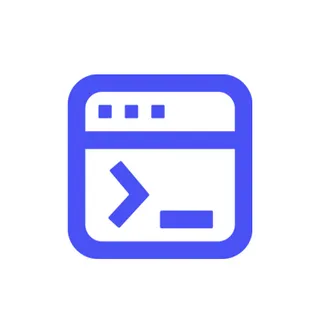
Functional Programming Patterns With RamdaJS! 
Discover the power of functional programming with RamdaJS! This course will teach you the fundamentals of this powerful library and how to apply it to your own projects. ▼
ADVERTISEMENT
Course Feature
![]() Cost:
Cost:
Free
![]() Provider:
Provider:
Educative
![]() Certificate:
Certificate:
No Information
![]() Language:
Language:
English
![]() Start Date:
Start Date:
Self Paced
Course Overview
❗The content presented here is sourced directly from Educative platform. For comprehensive course details, including enrollment information, simply click on the 'Go to class' link on our website.
Updated in [April 29th, 2023]
This course, Functional Programming Patterns With RamdaJS, is designed to help developers understand the fundamentals of functional programming and how to apply them using the Ramda library. It will cover topics such as pure functions, currying, and point-free style. Participants will learn how to use popular FP patterns with Ramda, such as map, filter, reduce, and Lodash. By the end of the course, developers will have a better understanding of how to use functional programming in their own projects.
[Applications]
After completing this course, participants can apply the concepts of functional programming to their own projects. They can use Ramda to create pure functions, currying, and point-free style. Additionally, they can use the popular patterns discussed in the course to create more efficient and maintainable code. Participants can also use the knowledge gained to explore other functional programming libraries and frameworks.
[Career Paths]
Recommended Career Paths:
1. Front-End Developer: Front-end developers are responsible for creating the visual elements of a website or application. They use HTML, CSS, and JavaScript to create the user interface and ensure that it is both visually appealing and functional. With the increasing popularity of functional programming, front-end developers are expected to have a strong understanding of FP concepts and be able to apply them to their work.
2. Software Engineer: Software engineers are responsible for developing, testing, and maintaining software applications. They use a variety of programming languages, including functional programming languages, to create software solutions. As the demand for functional programming increases, software engineers are expected to have a strong understanding of FP concepts and be able to apply them to their work.
3. Data Scientist: Data scientists are responsible for analyzing large amounts of data and extracting meaningful insights from it. They use a variety of programming languages, including functional programming languages, to analyze data and create predictive models. As the demand for functional programming increases, data scientists are expected to have a strong understanding of FP concepts and be able to apply them to their work.
4. Machine Learning Engineer: Machine learning engineers are responsible for developing and deploying machine learning models. They use a variety of programming languages, including functional programming languages, to create and optimize machine learning models. As the demand for functional programming increases, machine learning engineers are expected to have a strong understanding of FP concepts and be able to apply them to their work.
[Education Paths]
Degree Paths:
1. Bachelor of Science in Computer Science: This degree path focuses on the fundamentals of computer science, including programming, software engineering, and computer architecture. It also covers topics such as algorithms, data structures, and operating systems. This degree path is ideal for those who want to pursue a career in software development, computer engineering, or computer science research. Developing trends in this field include artificial intelligence, machine learning, and blockchain technology.
2. Bachelor of Science in Information Technology: This degree path focuses on the application of technology to solve business problems. It covers topics such as database management, network security, and web development. This degree path is ideal for those who want to pursue a career in IT management, software engineering, or web development. Developing trends in this field include cloud computing, big data, and cybersecurity.
3. Master of Science in Computer Science: This degree path focuses on advanced topics in computer science, such as artificial intelligence, machine learning, and distributed systems. It also covers topics such as algorithms, data structures, and software engineering. This degree path is ideal for those who want to pursue a career in research or academia. Developing trends in this field include natural language processing, computer vision, and quantum computing.
4. Master of Science in Information Technology: This degree path focuses on the application of technology to solve business problems. It covers topics such as database management, network security, and web development. This degree path is ideal for those who want to pursue a career in IT management, software engineering, or web development. Developing trends in this field include cloud computing, big data, and cybersecurity.
Course Provider

Provider Educative's Stats at AZClass
Discussion and Reviews
0.0 (Based on 0 reviews)
Explore Similar Online Courses

Online Vegan Vegetarian Cooking School Class

Leadership Skills Mastery Vol 1: Leadership for 2019

Python for Informatics: Exploring Information

Social Network Analysis

Introduction to Systematic Review and Meta-Analysis

The Analytics Edge

DCO042 - Python For Informatics

Causal Diagrams: Draw Your Assumptions Before Your Conclusions

Whole genome sequencing of bacterial genomes - tools and applications

React Basics Course

JavaScript: Functions

NestJS Zero to Hero - Modern TypeScript Back-end Development
 Related Categories
Related Categories
 Popular Providers
Popular Providers
Quiz
 Submitted Sucessfully
Submitted Sucessfully
1. What is the main purpose of this course?
2. What is the main focus of this course?
3. What is the main goal of this course?


Start your review of Functional Programming Patterns With RamdaJS!